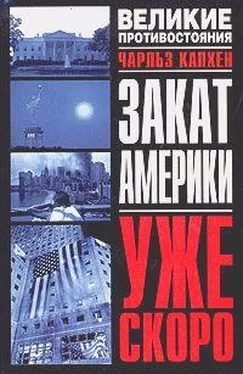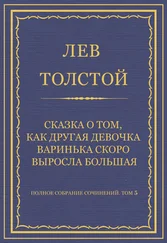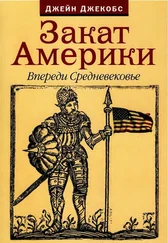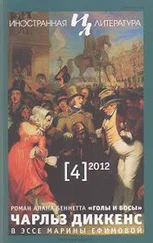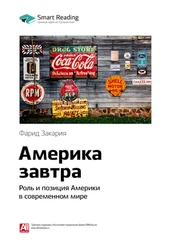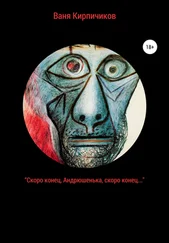Albecht-Carrie, Rene. The Concert of Europe. New York: Walker, 1969.
Anderson, Benedict. Imagined Communities: Reflections on the Origin and Spread of Nationalism. New York: Verso, 1991.
Angell, Norman. The Great Illusion: A Study of the Relation of Military Power in Nations to Their Economic and Social Advantage. New York: Putnam, 1910.
Art, Robert J. «Why Europe Needs the United States and NATO». Political Science Quarterly, vol. lll no. 1 (Spring 1996), p. 1—39.
Bailey, Thomas A. Woodrow Wilson and the Great Betrayal. New York: Macmillan, 1947.
Barber, Benjamin R. «Three Scenarios for the Future of Technology and Strong Democracy». Political Science Quarterly, vol. 113, no. 4 (Winter 1998–1999), p. 573–589.
Berghahn, V. R. Germany and the Approach of War in 1914. New York: St. Martin's, 1973.
Bernstein, Richard, and Ross H. Munro. «The Coming Conflict with China». Foreign Affairs, vol. 76, no. 2 (March — April 1997), p. 18–32.
Berry, Nicholas. «China Is Not an Imperialist Power». Strategic Review, vol. 24, no. 1 (Winter 2001), p. 4—10. Blinken, Antony J. «The False Crisis over the Atlantic». Foreign Affairs, vol. 80, no. 3 (May— June 2001), p. 35–48.
Bollier, David. Silent Theft: The Private Plunder of Our Common Wealth. New York: Routledge, 2002.
Boyd, Julian P., ed. The Papers of Thomas Jefferson. Princeton: Princeton University Press, 1953.
Brendon, Piers. The Dark Valley: A Panorama of the 1930s. New York: Knopf, 2000.
Brooks, David. Bobos in Paradise: The New Upper Class and How They Got There. New York: Simo'n & Schuster, 2000.
Brown, Michael E., Sean M. Lynn-Jones, and Steven E. Miller, eds. Debating the Democratic Peace. Cambridge, Mass.: MIT Press, 1996.
Bury, J. B. History of the Later Roman Empire: From the Death of Theodosius I to the Death of Justinian (A.D. 395 to A.D. 565). London: Macmillan, 1923.
Castlereagh, Robert Stewart. Correspondence, Dispatches, and Other Papers of Viscount Castlereagh. London: H. Col-burn, 1850.
Chace, Robert S., Emily B. Hill, and Paul Kennedy. «Pivotal States and U.S. Strategy». Foreign Affairs, vol. 75, no. 1 (January — February 1996), p. 33–51.
Connelly, Matthew, and Paul Kennedy. «Must It Be the Rest Against the West?» Atlantic Monthly, vol. 274, no. 6 (December 1994), p. 61–83.
Crenshaw, Martha, ed. Terrorism in Context University Park, Pa.: Penn State University Press, 1995.
Cronin, Bruce. Community Under Anarchy: Transnational Identity and the Evolution of Cooperation. New York: Columbia University Press, 1999.
Culver, John, and John Hyde. American Dreamer: The Life and Times of Henry A. Wallace. New York: Norton, 2000.
Daalder, Ivo H., and Michael E. O'Hanlon. Winning Ugly: NATO's War to Save Kosovo. Washington, D.C.: Brookings Institution Press, 2000.
Dahrendorf, Ralf. Class and Class Conflict in Industrial Society. Stanford, Calif.: Stanford University Press, 1959.
Dallek, Robert. Franklin D. Roosevelt and American Foreign Policy, 1932–1945. New York: Oxford University Press, 1979.
Davis, Kenneth. FDR: The War President, 1940–1943. New York: Random House, 2000.
DeConde, Alexander. Entangling Alliance: Politics and Diplomacy Under George Washington. Durham, N.C.: Duke University Press, 1958.
delaGarza, RodolfoO., and Harry P. Pachon, eds. Latinos and U.S. Foreign Policy: Representing the «Homeland»? Lanham, Md.: Rowman & Littlefield, 2000.
Destler, I. M., and Steven Kull. Misreading the Public: The Myth of a New Isolationism. Washington, D.C.: Brookings Institution Press, 1999.
Deudney, Daniel H. «The Philadelphian System: Sovereignty, Arms Control, and Balance of Power in the American States-Union, Circa 1787–1861». International Organization, vol. 49, no. 2 (Spring 1995), p. 191–228.
Diamond, Jared. Guns, Germs, and Steel: The Fate of Human Societies. New York: Norton, 1999.
Dionne, E. J., Jr. Community Works: The Revival of Civil Society in America. Washington, DC: Brookings Institution Press, 1998.
Divine, Robert A. Roosevelt and World War II. Baltimore: Johns Hopkins Press, 1969.
Second Chance: The Triumph of Internationalism in America During World War II. New York: Atheneum, 1967.
Doyle, Michael W. «Kant, Liberal Legacies, and Foreign Affairs». Philosophy and Public Affairs, vol. 12, nos. 3 and 4 (Summer and Fall 1983), p. 205–235, p. 323–353.
Droz, Jacques. Europe Between the Revolutions, 1815–1848. New York: Harper & Row, 1967.
Durkheim, Emile. The Division of Labor in Society. Translated by W. D. Halls. New York: Free Press, 1984.
Ellsworth, Harry Allanson. One Hundred Eighty Landings of United States Marines, 1800–1934. Washington, D.C.: History and Museums Division Headquarters, U.S. Marine Corps, 1974. Elman, Miriam Fendius, ed. Paths to Peace: Is Democracy the Answer? Cambridge, Mass.: MIT Press, 1997.
Esposito, John L., and John 0. Voll. Islam and Democracy. New York: Oxford University Press, 1998.
Etzold, Thomas H., and John Lewis Gaddis, eds. Containment: Documents on American Policy and Strategy, 1945–1950. New York: Columbia University Press, 1978.
Feaver, Peter D., and Richard H. Kohn. «The Gap: Soldiers, Civilians, and Their Mutual Misunderstanding». National Interest, no. 61 (Fall 2000), p. 29–37.
Fischer, David Hackett. Albion's Seed— Four British Folkways in America. New York: Oxford University Press, 1989.
Fischer, Fritz. World Power or Decline: The Controversy over Germany's Aims in the First World War. Translated by Lancelot Farrar, Robert Kimber, and Rita Kimber. New York: Norton, 1974.
Friedberg, Aaron L. «Ripe for Rivalry: Prospects for Peace in a Multipolar Asia». International Security, vol. 18, no. 3 (Winter 1993–1994), p. 5—33.
Friedman, Thomas L. The Lexus and the Olive Tree. New York: Farrar, Straus & Giroux, 1999.
Fukuyama, Francis. «The End of History?» National Interest, no. 16 (Summer 1989), p. 3—18.
The End of History and the Last Man. New York: Free Press, 1992.
«Second Thoughts: The Last Man in a Rottle». National Interest, no. 56 (Summer 1999), p. 16–33.
Gaddis, John Lewis. The United States and the Origins of the Cold War, 1941–1947. New York: Columbia University Press, 1972.
Galbraith, John Kenneth. The Great Crash, 1929. New York: Time Inc., 1961.
Gardner, Richard N. «The One Percent Solution». Foreign Affairs, vol. 79, no. 4 (July — August 2000), p. 2—11.
Garraty, John A. Henry Cabot Lodge: A Biography. New York: Knopf, 1968.
Garreau, Joel. The Nine Nations of North America. Boston: Houghton Mifflin, 1981. Hall, John A., and Charles Lindholm. Is America Breaking Apart? Princeton: Princeton University Press, 1999.
Halstead, Ted. «A Politics for Generation X». Atlantic Monthly, vol. 284, no. 2 (August 1999), p. 33–42.
Hayek, F. A. The Fatal Conceit: The Errors of Socialism. Chicago: University of Chicago Press, 1988.
Helms, Jesse. «Saving the U.N.: A Challenge to the Next Secretary-General». Foreign Affairs, vol. 75, no. 5 (September — October 1996), p. 2–7.
Hietala, Thomas R. Manifest Design: Anxious Aggrandizement in Late Jacksonian America, Ithaca: Cornell University Press, 1985.
Home, Alistair. A Savage War of Peace: Algeria, 1954–1962. New York: Viking Press, 1977.
Hunt, Michael H. Ideology and U.S. Foreign Policy. New Haven: Yale University Press, 1987.
Huntington, Samuel P. «The Clash of Civilizations?» Foreign Affairs, vol. 72, no. 3 (Summer 1993), p. 22–49.
The Clash of Civilizations and the Remaking of World Order. New York: Simon & Schuster, 1996.
Ikenberry, G. John. After Victory: Institutions, Strategic Restraint, and the Rebuilding of Order After Major Wars. Princeton: Princeton University Press, 2001.
Читать дальше
